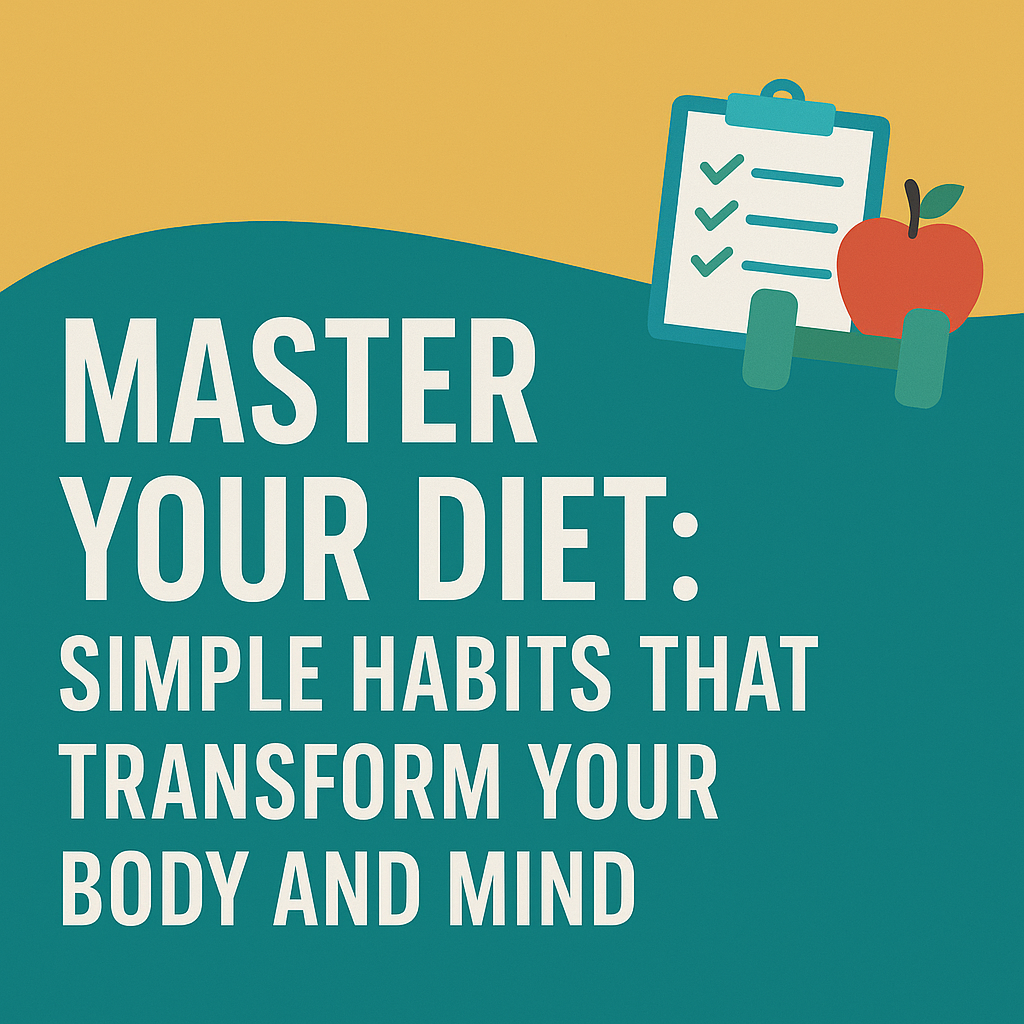When people think of dieting, most imagine strict rules, starving themselves, or following unrealistic meal plans. But in reality, mastering your diet isn’t about punishment — it’s about understanding your body, building simple habits, and making smarter food choices that last.
In this guide, we’ll walk you through practical steps to take control of your diet — not just to lose weight, but to boost energy, improve mental clarity, and feel better every single day.
Why Diet Matters More Than You Think
Your diet is the foundation of your health. It impacts:
- Your energy levels
- Your mood and focus
- Your weight and metabolism
- Your immune system
- Long-term risk of disease
In simple words: You become what you eat. If you fuel your body right, it performs better. If you feed it junk, it breaks down faster.
1. Build a Balanced Plate
Forget complex macros and fad diets. The easiest way to master your diet is to follow a balanced plate rule. Aim to include:
- 50% vegetables & fruits (fiber + vitamins)
- 25% whole grains (brown rice, oats, quinoa)
- 25% protein (chicken, eggs, legumes, tofu)
Include healthy fats (olive oil, nuts, seeds) in small amounts and drink plenty of water. Balanced meals keep you full longer and prevent cravings.
2. Eat on Time — and Don’t Skip Meals
Skipping meals, especially breakfast, messes up your metabolism and increases your chance of overeating later. Try these:
- Eat within 30–60 minutes of waking up
- Have small meals every 3–4 hours
- Avoid heavy dinners close to bedtime
Consistent timing trains your body and helps with digestion, energy, and better sleep.
3. Mindful Eating Over Calorie Counting
Counting every single calorie can be overwhelming. A better approach is mindful eating — paying attention to what and how you eat.
Tips:
- Don’t eat in front of screens
- Chew slowly and enjoy each bite
- Stop eating when 80% full
- Avoid emotional eating (stress, boredom)
When you eat mindfully, you naturally eat less and feel more satisfied.
4. Hydration = Discipline
Often we confuse hunger with thirst. Drinking enough water can curb unnecessary snacking and improve digestion, skin, and focus.
How much water?
- General rule: 8–10 glasses/day
- More if you’re active or in hot climates
- Carry a bottle and track your intake
Avoid sugary drinks, and limit caffeine to 1–2 cups daily.
5. Don’t Fear Carbs or Fats
The biggest myth? That carbs and fats are your enemies. Truth is, your body needs both to function.
Healthy carbs:
- Brown rice
- Whole wheat
- Quinoa
- Fruits
Healthy fats:
- Avocados
- Olive oil
- Nuts & seeds
- Fatty fish (like salmon)
What to avoid: processed sugars, white bread, trans fats, fried snacks.
6. Plan, Prep, Repeat
Poor diet choices often happen because of poor planning. Build a simple system:
- Plan your weekly meals in advance
- Prep some ingredients (boil eggs, chop veggies)
- Carry healthy snacks (fruits, nuts, yogurt)
Meal prep = diet success. It saves time and removes last-minute junk food decisions.
7. Track Progress, Not Perfection
You don’t need to eat perfectly every day. You need to eat consistently better most days. Keep a journal, or use an app to track:
- What you eat
- How you feel (energy, mood, sleep)
- Weight or inches (optional)
Small wins lead to big results.
What to Avoid: Common Diet Mistakes
- Skipping meals
- Over-relying on supplements
- Following extreme or celebrity diets
- Drinking calories (juices, sodas, alcohol)
- Ignoring sleep and stress
Remember, diet is only one part of the puzzle. Good sleep, exercise, and mental health matter too.
🍏 Struggling with Weight or Digestion? Try This Natural Solution
Apple cider vinegar has been used for centuries for weight loss, better digestion, clearer skin, and natural detox. If you’re curious about how to use it safely and effectively, this detailed guide covers everything — benefits, dosages, and simple recipes.
👉 Discover the Apple Cider Vinegar Benefits Here
Whether you’re starting your fitness journey or just want to feel healthier naturally, this guide can help.

